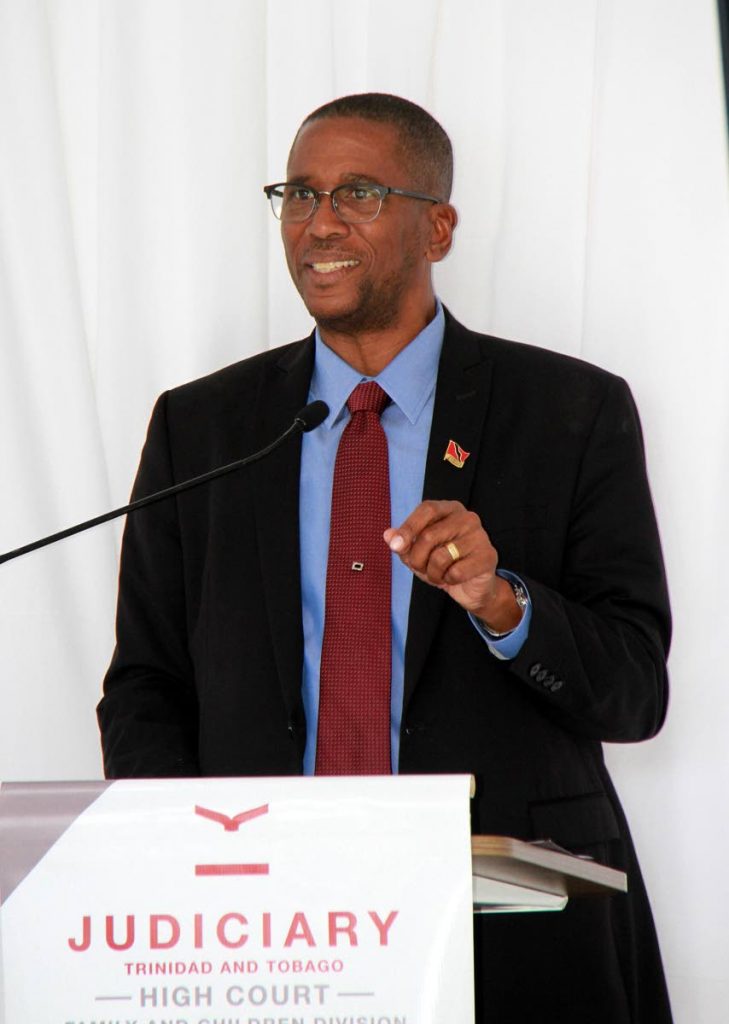Vacation, not sabbatical leave

JADA LOUTOO
CHIEF Justice Ivor Archie will not go on his six-month sabbatical. Instead, he will use a portion of accrued vacation leave to, “rest, reflect and study” in the United States.
In a statement yesterday evening, Archie said, “Conscious of consternation which appears to have been caused by opting to access my sabbatical option and in a clear desire to ensure that the heads of all arms of the State are not derailed from truly important national business by this issue, I have opted to not proceed on sabbatical.
‘However, as I have, since the middle of 2017 been engaged with the highly respected US Federal Judicial Centre on the issue of my study; and in November 2017 committed to this undertaking, I will proceed to utilise a portion of my vacation leave entitlement to address my study.
“As of today, I am entitled to thirty-five unutilised vacation in the office of Chief Justice. I trust and pray that in my absence in the interest of the country and of all Judges of the Supreme Court the issue of legal interpretation of the 98th report of the SRC will be ventilated and clarified without ad hominem consideration.
“I will be returning from time to time to Trinidad and Tobago during the period of my study.” Archie also responded to queries on his outstanding workload, saying, ‘I have no outstanding judgements.” But already there is disagreement within the Judiciary on Archie’s entitlement to the vacation leave he said he accrued.
NO SUCH ENTITLEMENT
“There is no such entitlement,” a legal source said pointing out that the SRC report did not alter judges’ vacation, and although the language at page 22 of the report was poor, the six-week vacation applied to the long vacation. “There is no legislative provision for the accrual of vacation.”
Leading legal sources also said yesterday that Prime Minister Dr Keith Rowley could not stop Archie from leaving on a sabbatical, if he had chosen to go, nor could he withhold the CJ’s salary. “The Prime Minister has no power to stop him,” said a senior attorney. “He would be inviting litigation from the Chief Justice if he does so. These concerns of government are baseless and now has egg on its face.”
In November, Archie told President Anthony Carmona of his plan to go on a sabbatical to, “rest, reflect and study,” on a judicial fellowship in Washington, DC. The government believes Archie is not entitled to any sabbatical leave under terms of the Salary Review Commission’s (SRC) 98th Report.
The Judiciary and the President disagreed. Carmona, in a response to Prime Minister Dr Rowley’s enquiry to explain under what authority he granted the CJ’s request, said he was satisfied that Archie exercised his administrative prerogative as head of the Judiciary in deciding to take leave.
Newsday spoke with two attorneys on the issue yesterday. Both asked to remain anonymous. The second attorney said the President did not grant Archie permission to go on sabbatical but to leave the country, in accordance with the provisions of the Judges Salaries and Pensions Act. “They even have to get permission to travel during the court vacation.” According to the act, a judge may go abroad, outside of duty assignments, with the approval of the Chief Justice, but cannot be absent without the approval of the President.
JUDGE MUST APPLY
“When a judge has to leave the country he or she has to apply to the President to leave the jurisdiction. This is done to ease the President’s concern that that judge’s absence does not affect the administration of justice. He does not give them permission to do something that is part of the internal arrangements of the judiciary. When the Chief Justice wrote to the President, he was telling him, ‘I need your permission to leave the country.’
“The reason for this is simple. It is to make sure the President knows where the judges are. The President is not concerned about whether the CJ is right or wrong on giving himself sabbatical leave. All he is concerned about is that the proper arrangements are in place for someone to act.” The other attorney also insisted the executive had no role in approving sabbatical leave or any leave for judges.
“This would be a major breach of the separation of powers and would allow for an executive to manipulate or influence judges by threatening to withhold leave.”
Both attorneys also disagreed with the government’s position on the SRC report, pointing to the references by both the Judiciary and the President to the Hansard and the report itself. “It was clear that the government of the day had accepted the recommendations contained in the report, including that of sabbatical leave for judges.


Comments
"Vacation, not sabbatical leave"